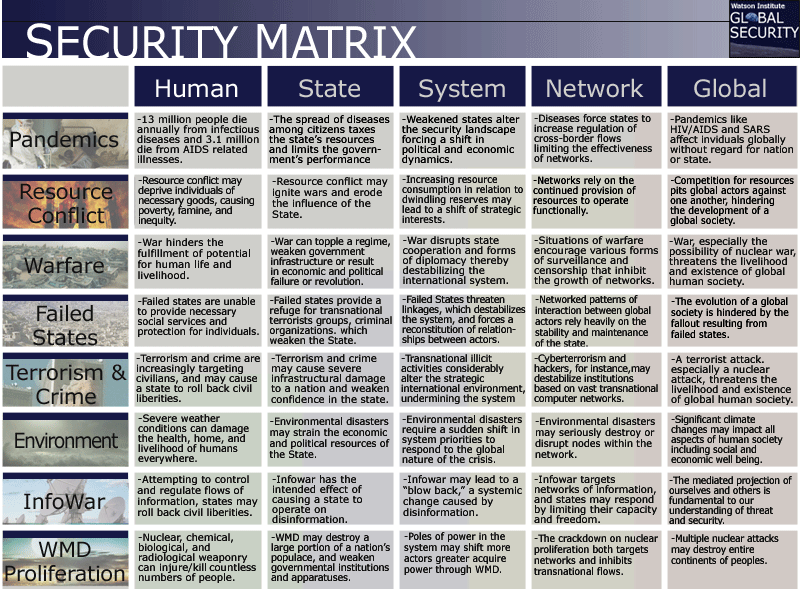Many articles on this site argue that the making of meaning is central to being human, and therefore nurturing meaning-making, and positive meaning-full action, should be central to education and parenting. But what of the broader picture? W. T. Stace said;
The problem of evil assumes the existence of a world-purpose. What, we are really asking, is the purpose of suffering? It seems purposeless. Our question of the why of evil assumes the view that the world has a purpose, and what we want to know is how suffering fits into and advances this purpose. The modern view is that suffering has no purpose because nothing that happens has any purpose: the world is run by causes, not by purposes. W. T. Stace – Religion and the Modern Mind
Suffering has purpose because through it we gain insight and come to realization. Its just that meaninglessness is the meaning that is more popular. The answer to that is to construct greater meaning, meaning based on eternal verities rathern than fleeting fashions and false realities.
Not for the first time I stumbled across an example of the phenomenon about which the great John Hull has railed. Hull’s theme is disgust at how ‘mammon’ has stolen the language and concepts of the spiritual life. Consider this;
A World of Meaningful Experiences
Humans have evolved to value increasingly complex meaning in their lives, an evolution that is partly reflected in our consumption of goods and services. This evolution has proceeded from a primary focus on function and economic value to the addition of progressively more intricate offerings like status and emotional value, and now meaning. Worldwide, consumers are increasingly seeking products and services that connect with them through meaning, that jive with their sense of how the world is, or should be. Although this trend is prevalent in the West, we see increasing evidence of it globally. Just as tribes, traditions, and objects brought order and “rightness” to people in previous centuries, a company and its offerings may now play that role as well by solidifying a relationship at the deepest possible point in the human psyche and personality. It’s a potent place for a company to be.
Companies have been both lauded and derided in the past for creating lifestyles, particularly consumer lifestyles. We’re not convinced they’ve actually done so. Instead, we think companies have become adept at making a connection from products and services to emerging lifestyles and trends. They may have embraced these new directions, and perhaps amplified them, but not actually created them. Similarly, we’re not arguing that companies are in a position to create meaning in people’s lives, rather that they are in a position to connect to meanings people already recognize and want.
Companies can address people’s growing desire for meaning by intentionally designing cohesive experiences based on a specific meaning and expressed cohesively through products, services, and other consumer touch points.
Experiences with Global Appeal
What types of meaningful experiences do people value? In the course of helping companies develop products and services that suit their markets, every year we interview over 100,000 individuals from countries and cultures around the world. In these interviews, we’ve found commonalities among the meanings people feel strongly about, whether we’re studying the adoption of new software in Poland or the purchase of toothbrushes in Florida.
We’ve compiled a list of these meanings, but it is far from exhaustive. We’ve found potentially dozens of types of meaningful experiences and at least as many possible ways to characterize them. What we concentrate on here are 15 of the meanings that emerge most frequently in these interviews and appear to be universal among people’s values. While the relative importance of these meaningful experiences might vary and their interpretation could differ slightly, all cultures seem to recognize their significance. This is good news for businesses, because it means that there is a certain constancy among human needs that transcends the distinctions of culture and language.
(Since none of these meaningful experiences is more or less important than any other, we’ve presented them in alphabetical order.)
1. Accomplishment— Achieving goals and making something of oneself; a sense of satisfaction that can result from productivity, focus, talent, or status. American Express has long benefited from transmitting a hint of this meaning to its card holders by establishing itself as a credit card intended for those who are successful. Nike relies on the essence of this meaning for many in its “Just Do It” campaign.
2. Beauty— The appreciation of qualities that give pleasure to the senses or spirit. Of course beauty is in the eye of the beholder and thus highly subjective, but our desire for it is ubiquitous. We aspire to beauty in all that surrounds us, from architecture and fine furnishing to clothing and cars. Enormous industries thrive on the promise of beauty stemming from shinier hair, whiter teeth, and clearer skin. Beauty can also be more than mere appearance. For some, it is a sense that something is created “correctly” or efficiently with an elegance of purpose and use. Companies such as Bang & Olufsen audio equipment and Jaguar automobiles distinguish themselves through the beauty of their design.
3. Creation— The sense of having produced something new and original, and in so doing, to have made a lasting contribution. Besides driving our species to propagate, we enjoy this experience through our hobbies, the way we decorate our home, in telling our stories, and in anything else that reflects our personal choices. Creation is what makes “customizable” seem like a desirable attribute, rather than more work for the buyer, for example, making the salad bar a pleasure rather than a chore.
4. Community— A sense of unity with others around us and a general connection with other human beings. Religious communities, unions, fraternities, clubs, and sewing circles are all expressions of a desire for belonging. The promise and delivery of community underlies the offerings of several successful organizations including NASCAR with its centralizing focus on car racing and leagues of loyal fans that follow the race circuit, Harley-Davidson motorcycles and their Harley Owners Group (HOG), and Jimmy Buffet with his dedicated Parrotheads. These businesses attract and support user communities who embody specific values tied to their products and services.
5. Duty— The willing application of oneself to a responsibility. The military in any country counts on the power of this meaning, as do most employers. Duty can also relate to responsibilities to oneself or family, such as reading the daily paper to stay abreast of the news. Commercially, anything regarded as “good for you,” including vitamins, medications, Cross-Your-Heart bras, and cushioned insoles relays some sense of duty and the satisfaction it brings.
6. Enlightenment— Clear understanding through logic or inspiration. This experience is not limited to those who meditate and fast, it is a core expectation of offerings from Fox News, which promises “fair and balanced” reporting, the Wall Street Journal, which many consider the ultimate authority for business news, and the Sierra Club, which provides perspective on environmental threats and conservation.
7. Freedom— The sense of living without unwanted constraints. This experience often plays tug-of-war with the desire for security; more of one tends to decrease the other. Nevertheless, freedom is enticing, whether it’s freedom from dictators, or in the case of Google, the freedom to quickly search the Web learning and interacting with millions of people and resources.
8. Harmony— The balanced and pleasing relationship of parts to a whole, whether in nature, society, or an individual. When we seek a work/life balance, we are in pursuit of harmony. Likewise, when we shop at Target for a toaster that matches our mixer, we are in pursuit of harmony. Much of the aesthetic appeal of design depends on our personal desire for the visual experience of harmony.
9. Justice— The assurance of equitable and unbiased treatment. This is the sense of fairness and equality that underlies our concept of “everyman” or Average Joe. It helps explain the immense popularity of the Taurus and the Camry, the ranch house, Levi’s jeans, and white cotton T-shirts—all products with a simple, impartial appeal to a very broad audience.
10. Oneness— A sense of unity with everything around us. It is what some seek from the practice of spirituality and what others expect from a good tequila. Although we don’t normally think of them as a company, the Grateful Dead sustained its revenues for decades building an experience that connected with its fans’ desire for oneness. Similarly, organizations that connects their members into nature or a broader sense of the world, like the Monterey Bay Aquarium or the United Nations, are capable of evoking a meaning of oneness.
11. Redemption— Atonement or deliverance from past failure or decline. Though this might seem to stem from negative experiences, the impact of the redemptive experience is highly positive. Like community and enlightenment, redemption has a basis in religion, but it also attracts customers to Weight Watchers, Bliss spas, and the grocery store candy aisle. Any sensation that delivers us from a less desirable condition to a more pleasing another one can be redemptive.
12. Security— The freedom from worry about loss. This experience has been a cornerstone of civilization but in the U.S. in particular, acquired increased meaning and relevance after 9/11. On the commercial side, the desire for this experience created the insurance business, and it continues to sell a wide range of products from automatic rifles to Depends undergarments to credit cards that offer protection from identity theft.
13. Truth— A commitment to honesty and integrity. This experience plays an important role in most personal relationships, but it also is a key component of companies like Whole Foods, Volkswagen, and Newman’s Own, all of which portray themselves as simple, upright, and candid.
14. Validation— The recognition of oneself as a valued individual worthy of respect. Every externally branded piece of clothing counts on the attraction of this meaningful experience whether it’s Ralph Lauren Polo or Old Navy, as does Mercedes-Benz, the Four Seasons hotel chain, and any other brand with status identification as a core value.
15. Wonder— Awe in the presence of a creation beyond one’s understanding. While this might sound mystical and unattainable, consider the wonder that Las Vegas hotels create simply through plaster and lights. Disney has been a master of this experience for decades, and technology companies routinely evoke awe as they enable their users to do what seemed impossible the year before.
This brilliant list is written to enable designers and manufacturers to make things more satisfying and eventually get a better ROI (return on investment). Is this a disaster for all that is good, true and beautiful – or is it a great step forward?
Ultimately making meaning is always a journey toward the realization of oneness. When we arrive there is only now but maybe have goods that are imbued with the qualities of the spirit is no bad thing?




